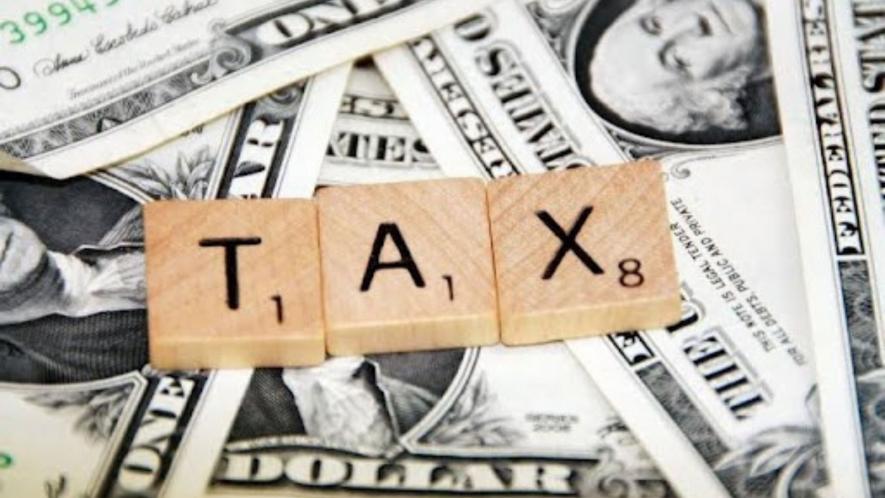Report on Global Tax Evasion Calls for Minimum Tax on Billionaires

Representative image. | Image courtesy: Flickr
A new report titled 'Global Tax Evasion Report' by the EU Tax Observatory has called for a global minimum tax on billionaires, considering the significant need for governments worldwide to increase their revenue to address topical concerns such as wealth inequality and climate change. The report also stresses the need for increased funding for services like education, healthcare, and infrastructure.
EU Tax Observatory is "a research laboratory established in 2021 with expertise in international tax issues."
The report, a summary of the works of over 100 researchers globally, also looks at new data on MNCs, offshore wealth, and how policy initiatives by various governments impacted these things. It also analyses the effects of international reforms, such as the international agreement on a global minimum tax on MNCs and the automatic international exchange of bank information, among other things.
"Tax evasion, wealth concealment, profit shifting to tax havens are not laws of nature. They are the results of policy choices or of the failure to make certain choices. It is necessary to assess the consequences of policies enacted in this area and to investigate what else needs to be done to improve the sustainability of our tax systems. There is, fundamentally, a need for an IPCC [Intergovernmental Panel on Climate Change] of taxation – and we hope to contribute to this evolution with this first-of-its-kind report," Gabriel Zucman, co-author of the report, said.
The automatic exchange of information was introduced in 2017 against offshore tax evasion.
In 2023 alone, over 100 countries exchanged information with each other on the "deposits of non-residents to foreign tax authorities as part of the common reporting standard."
In October 2022, India received information from Swiss banks as part of this exchange.
India addressed the issue of the minimum global tax rate in October 2021. The country introduced a tax rate of 15% for MNCs to make it more challenging for them to avoid taxation. However, as per the Global Tax Evasion Report, there exist loopholes in the system which are being used by MNCs to evade tax.
Among its key findings, the report noted that offshore tax evasion has decreased in the last 10 years. In 2013, an equivalent of 10% of the GDP of the world was stored in global tax havens. Only 25% of this wealth is untaxed now.
There are barriers to completely curbing offshore tax evasion, such as "non-compliance by offshore financial institutions and limitations in the automatic exchange of bank information."
Another key finding is related to the shifting of profits by MNCs. As per the report, around USD 1 trillion was moved to tax havens by MNCs, equivalent to 35% of profits they made outside their headquarters countries.
Moreover, the global minimum tax of 15% on multinationals has yet to have the desired impact since many billionaires get away by paying just 0-0.5% tax on their wealth. They do this by storing their wealth in shell companies to evade taxation.
Referring to the findings, Zucman says, “It’s like in Sergio Leone’s movie, The Good, the Bad and the Ugly. Our research uncovers a major success worth celebrating – the end of bank secrecy, a setback – the dramatic weakening of the global minimum tax on MNCs, and issues that remain unaddressed, such as the persistently low effective tax rates of global billionaires.”
The solutions offered by the report included a global minimum tax on billionaires, equivalent to 2% of their wealth.
“To understand the logic of this proposal, consider a billionaire, John, who lives in the United States and owns a stake in a company worth USD 10 billion. To simplify, assume that this USD 10 billion stake accounts for all his wealth. Any country could compute the tax deficit of John, namely the difference between what John pays in personal taxes today and what he would have to pay if he was subject to a 2% minimum tax on wealth,” the report explains.
“For instance, if John pays USD 50 million in personal taxes, he has a tax deficit of 2% times USD 10 billion minus USD 50 million, which is USD 150 million. Any country could then collect a portion of this tax deficit. For example, if the firm from which John derives his wealth makes 10% of its sales in India, then India could collect 10% of John’s tax deficit, i.e., USD 15 million. The underlying logic is that 10% of John’s wealth (the value of the business he owns) can be seen as deriving from access to India’s market. If no country ensures that John pays at least 2% of his wealth in taxes, some countries need to step in and play the role of “tax collector of last resort.”
Additionally, among other solutions, the report calls for a stronger implementation of the global minimum tax on MNCs.
Get the latest reports & analysis with people's perspective on Protests, movements & deep analytical videos, discussions of the current affairs in your Telegram app. Subscribe to NewsClick's Telegram channel & get Real-Time updates on stories, as they get published on our website.






















